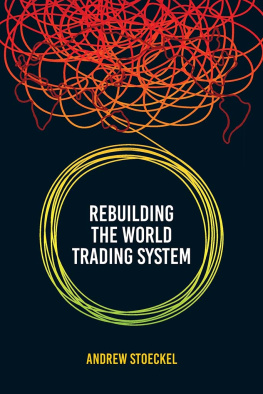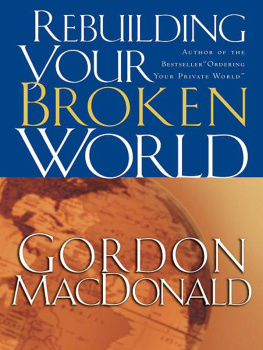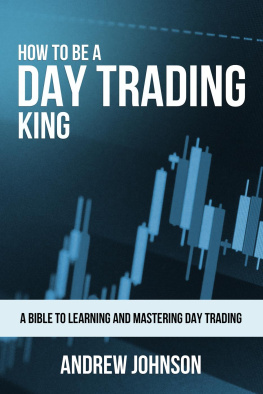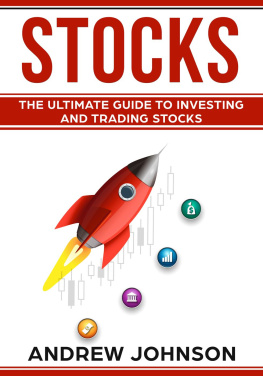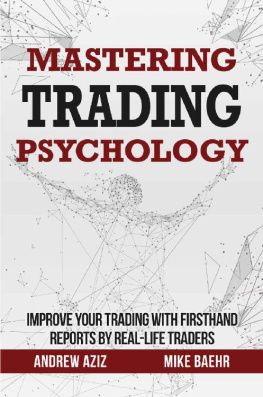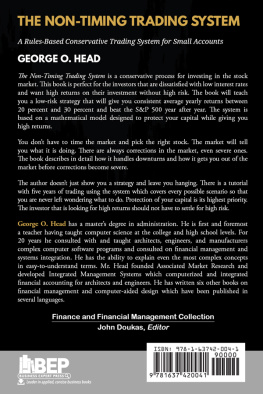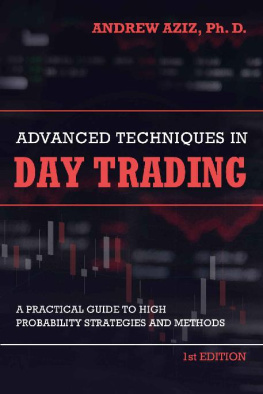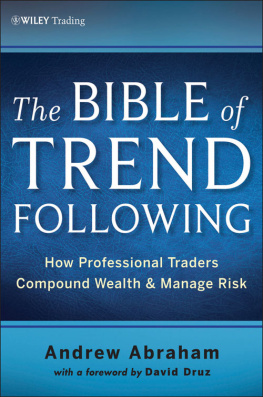Andrew B Stoeckel - Rebuilding the World Trading System
Here you can read online Andrew B Stoeckel - Rebuilding the World Trading System full text of the book (entire story) in english for free. Download pdf and epub, get meaning, cover and reviews about this ebook. year: 2021, publisher: Stoeckel Group Pty Ltd, genre: Politics. Description of the work, (preface) as well as reviews are available. Best literature library LitArk.com created for fans of good reading and offers a wide selection of genres:
Romance novel
Science fiction
Adventure
Detective
Science
History
Home and family
Prose
Art
Politics
Computer
Non-fiction
Religion
Business
Children
Humor
Choose a favorite category and find really read worthwhile books. Enjoy immersion in the world of imagination, feel the emotions of the characters or learn something new for yourself, make an fascinating discovery.
- Book:Rebuilding the World Trading System
- Author:
- Publisher:Stoeckel Group Pty Ltd
- Genre:
- Year:2021
- Rating:4 / 5
- Favourites:Add to favourites
- Your mark:
- 80
- 1
- 2
- 3
- 4
- 5
Rebuilding the World Trading System: summary, description and annotation
We offer to read an annotation, description, summary or preface (depends on what the author of the book "Rebuilding the World Trading System" wrote himself). If you haven't found the necessary information about the book — write in the comments, we will try to find it.
Rebuilding the World Trading System — read online for free the complete book (whole text) full work
Below is the text of the book, divided by pages. System saving the place of the last page read, allows you to conveniently read the book "Rebuilding the World Trading System" online for free, without having to search again every time where you left off. Put a bookmark, and you can go to the page where you finished reading at any time.
Font size:
Interval:
Bookmark:


Rebuilding the World Trading System
Confederation of Asia-Pacific Chambers
of Commerce & Industry
www.cacci.biz
Copyright Andrew Stoeckel 2021
All rights reserved.
Without limiting the rights under copyright above,
no part of this publication shall be reproduced, stored
in or introduced into a retrieval system or transmitted
in any form or by any means (electronic, mechanical,
photocopying, recording or otherwise), without the
prior permission of both the copyright owner and
publisher of this book.
First published in 2021 by Confederation of Asia-Pacific
Chambers of Commerce & Industry
ISBN: 978-626-95215-0-0
ISBN: 978-626-95215-1-7 (e-book)


FOREWORD
Calls for root-and-branch reform of the world trading system are common for good reason. The main functions of the World Trade Organization system are failing or stalled, protectionism has risen, and trade policy has been weaponised by the majors.
Trade is the commercial exchange of goods and services across borders. It is driven by businesses who do the buying and selling. Small and medium business enterprises (SMEs) are the engine rooms of economies. For some, they account for the vast bulk of economic activity. Yet SMEs are rarely consulted on their views about trade and what rules would help facilitate commerce. Partly this lack of consultation is because there are so many SMEs millions, in fact. Partly it is because individual SMEs do not have the resources to analyse problems and suggest remedies. Hence the responsibility of peak bodies representing SMEs to inject their views.
The Confederation of Asia-Pacific Chambers of Commerce and Industry (CACCI) represents over 150 million businesses across 25 member nations that employ perhaps a billion people. CACCI last injected their views on global trade policy during the Uruguay Round of negotiations that proved successful. The approach then was to commission an independent study that members could react to and distil their recommendations. That study was titled Western Trade Blocs: Game, Set or Match for Asia-pacific and the World Economy? by the Canberra-based Centre for International Economics.
The previous success has led CACCI to commission this independent study to explain to members what is behind todays trade policy problems and where the solutions might lie. This study has been an eye-opener for our members. It helps explain why some steps that stand to improve the trade system have yet to be made by various groups working on the issue such as the G7 and G20.
Based on this independent study, our understanding of the root causes of the problem has led CACCI to adopt its own set of recommendations on ways to improve the worlds trading system. These have been published as Achieving a Successful World Trading System, a companion booklet that is available electronically at www.cacci.biz.
CACCI believes these actions will make a material difference to the World Trade Organization system and improve living standards.

Samir Modi
President
Confederation of Asia-Pacific Chambers of Commerce and Industry
CONTENTS
ACKNOWLEDGEMENTS
With the usual caveat on remaining errors and omissions, I would like to thank many people who have helped formulate this study and suggest improvements.
Credit for conceiving the study goes to Ken Court, a former Australian CACCI President and currently Chairman of the CACCI Advisory Board. Ken recognised the seriousness of the demise of the World Trade Organization system and the need to prosecute the idea that, once again, small and medium-sized businesses around the Asia-Pacific needed to put concrete proposals forward on how to improve the world trading system. Bryan Clark, Director of the International Chamber of Commerce Australia, gave leadership to the project as well as many ideas and constructive comments.
Thanks also go to the Steering Committee formed to provide valuable comments and inputs on the substance and coverage of the study under the chairmanship of current CACCI President, Samir Modi (India). Beside Ken and Bryan, other members of the committee were Benedicto Yujuico (the Philippines), Jemal Inaishvili (Georgia), Peter McMullin (Australia), Sheikh Fazle Fahim (Bangladesh), Pedram Soltani (Iran), Kazuo Nishitani representing Teruo Asada (Japan), Mustafa Bayburtlu representing Rifat Hisarciklioglu (Turkey) and Ernest Lin representing the CACCI Secretariat.
Interacting with the committee members helped hone the arguments and hopefully present them to a wide audience. Many of these members sought and received helpful input from trade experts within their own countries. Two people whose comments were helpful were Professor Syed Ferhat Anwar, Institute of Business Administration, University of Dhaka, and Dr Sait Akman, Director, G20 Studies Centre, TEPAV, Turkey.
Ross Lambie and former colleague George Reeves kindly helped clarify the economic arguments. Editorial input was provided by Lorna Hendry, working under tight deadlines. Their input is gratefully acknowledged.
This book builds on previous studies on trade conducted over thirty years while I was at the Centre for International Economics. It repeats and reworks material from two studies in particular: Termites in the Basement and Policy Transparency the latter being co-authored by my former colleague Hayden Fisher. All of this work has benefited from lively debate with former colleagues and much of it supported by the Rural Industries Research and Development Corporation, for which I am most grateful.
Finally, I would like to thank CACCI for their financial support that allowed this worthwhile project to go ahead. Full membership of CACCI and sponsors are detailed in the companion Policy Statement by CACCI titled Achieving a Successful World Trading System available at www.cacci.biz. It would be most gratifying to see these ideas adopted by policymakers as the potentially enormous prize.
CHAPTER 1
Introduction
If economists ruled the world, there would be no need for a World Trade Organization, wrote Nobel laureate Paul Krugman in 1997. He went on to explain, The economists case for free trade is essentially a unilateral case: a country serves its own interests by pursuing free trade regardless of what other countries may do.
Yet we do have a World Trade Organization (WTO) and it has been judged to be important in creating a multilateral system of international trade in goods and services of great benefit to the world. Indeed, Martin Wolf, Chief Economic Commentator of the Financial Times, has argued that the WTO is an effective system of international economic law and it is the greatest achievement in institutionalized global cooperation, tout court.
So why do we have a WTO? Is it still fit for purpose? More relevant, why is the international trading system described as being in crisis by the European Union, with calls from the United States for a reset that piecemeal reforms will not fix.
Font size:
Interval:
Bookmark:
Similar books «Rebuilding the World Trading System»
Look at similar books to Rebuilding the World Trading System. We have selected literature similar in name and meaning in the hope of providing readers with more options to find new, interesting, not yet read works.
Discussion, reviews of the book Rebuilding the World Trading System and just readers' own opinions. Leave your comments, write what you think about the work, its meaning or the main characters. Specify what exactly you liked and what you didn't like, and why you think so.

